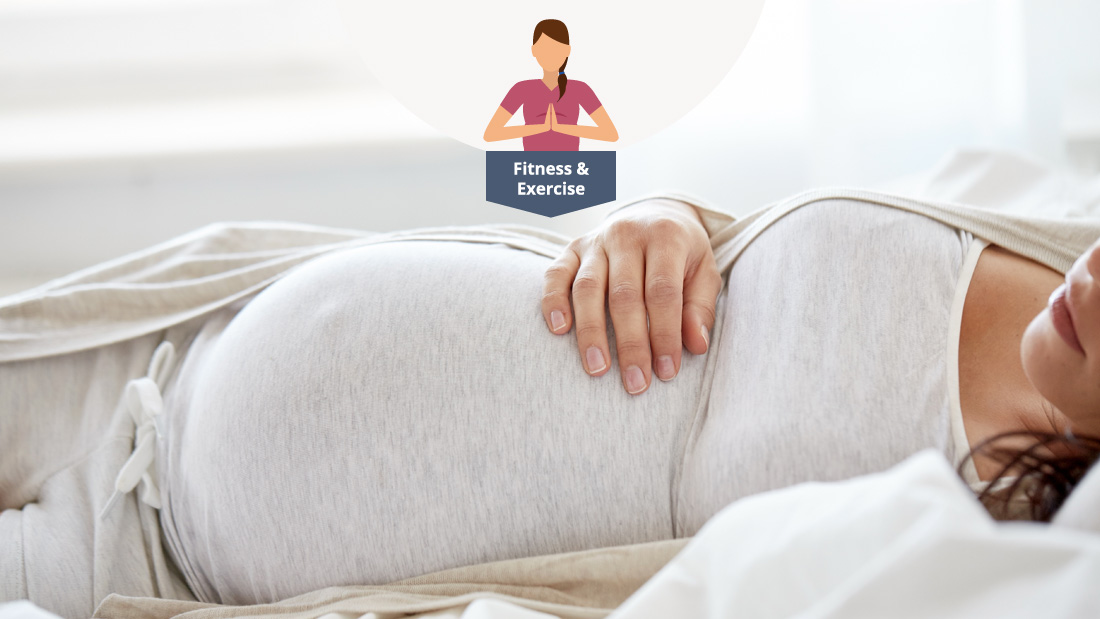
Sleep yourself healthy in late stage pregnancy
Sleep can be difficult during pregnancy. At every stage, there can be some symptom or other that causes discomfort and prevents you from getting a good night’s sleep, every night. Unfortunately, this is especially true in the third trimester.
Common culprits of disturbed nights include the frequent need to urinate (because of pressure put on the bladder by your expanding uterus), back pain, restless leg syndrome, difficulty getting comfortable because of your growing bump, your energetic baby practising stretching and kicking inside your womb (he doesn’t know that it’s your bedtime), and simply nerves over becoming a parent.
The importance of sleep
Poor sleep is thought to be linked with health complications in late pregnancy. Past research has shown a link between bad sleeping habits and high blood pressure. In 2010, a study published in the journal Sleep showed that women who either slept too little or overslept while pregnant recorded higher blood pressure levels than those who got a normal amount of sleep. Short sleepers (those who got less than five hours per night) also had a higher chance of suffering from pre-eclampsia.
Plus, if you’re feeling tired out and run-down before going into labour, giving birth is likely to be more challenging. It is also widely believed that expectant mothers who get an adequate amount of sleep tend to have shorter labours.
Best sleeping positions for pregnancy
One of the biggest pregnancy problems when trying to sleep is back pain.
At this stage in your pregnancy, you want to avoid lying flat on your back (supine) in bed as this will not only cause pressure on your back and pelvis, but it can also reduce blood flow to your uterus.
Instead, try the “SOS” position (sleep on side).
Turn on to your side (some medical professionals claim that the left side is better, but either side should be beneficial) and slightly bend your knees. Place a pillow between your legs to support the weight of the top leg, easing the pressure on your pelvis and hips. Then place another pillow under your abdomen, which will help support the weight of your baby bump. You can also place another pillow behind your back to prop yourself up and prevent yourself from rolling over and reverting to sleeping on your back.
If you find yourself waking up on your back, don’t worry, simply readjust yourself to the SOS position and try to go back to sleep.
There are pillows specifically designed to help you get into the SOS position. These body pillows tend to be large and U-shaped, and they’re made so that they support all the key areas for side-sleeping
If you have a particular problem with heartburn and indigestion, then sleeping in an upright position may be the preferable choice. Again, you can use pillows to prop up your upper back and head. If you have one, you may find that sleeping in a comfy reclining armchair is a better option than a bed.
Can’t seem to kick leg cramps?
Leg cramps are thought to be caused by an excess of phosphorus and a shortage of calcium in your blood stream. When cramp is preventing from getting comfortable or if you’ve been woken by the pain, try stretching out your leg and flexing the ankle and toes. If this fails, getting out of bed and walk around for a little while.
If you find you have the urge to move your legs because of crawling, tingling, or burning sensations, then this is a sign you have restless leg syndrome (RLS), and the bad news is that RLS symptoms typically tend to peak in the third trimester.
Warm baths, cold packs, and stretches can help reduce the symptoms of RLS, but you should speak to your doctor or midwife about it as you have an iron or vitamin B12 deficiency. Avoid any form of caffeine (including tea) for at least six hours before going to bed because it can aggravate the symptoms of RLS.
Other helpful tricks to a good night’s sleep
- While exercise is great during pregnancy and (if done at the right time) can help you nod off in the evening, you shouldn’t workout just before going to bed. Exercise will increase your energy levels, causing your body to think it’s time to get active instead of time to rest.
- Establish a bedtime routine that will relax you. You can read a book or listen to music to help calm your mind or take a warm bath to help relax your muscles. Do what works for you as long as it helps you to wind down.
- Make sure the temperature of your bedroom is just right, as it’s normal to feel warmer when you’re pregnant. Wear loose-fitting, breathable nightwear.
- You want to try to get enough overall sleep, so if you know you’ve missed out on some hours during the night, try to make the time up by taking naps during the day. Get rest whenever you can. If you work, then your maternity leave is likely to be coming up shortly. You can use your time at home as an opportunity to catch up on missed sleep.
If you still struggle to get to sleep, it’s important to remember not to get stressed or become panicked that your lack of sleep will lead to poor health for you or your baby. This anxiety will only make the problem worse. Just remember that interrupted sleep during this final stage of pregnancy is perfectly normal. Hopefully, this information will help improve the situation. Just focus on relaxation and find a method that works for you.


